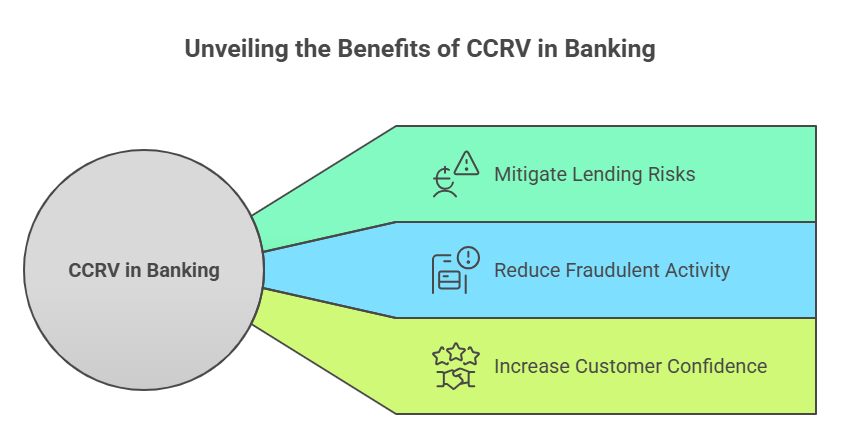Introduction
In today’s digital age, the banking sector has seen a significant rise in fraudulent activities. These activities, often sophisticated and complex, pose a serious threat to the financial health of individuals and the stability of financial institutions. One effective measure to prevent such frauds is Criminal Court Record Verification (CCRV), a process that checks a person’s criminal history. Additionally, regulatory compliance plays a crucial role in preventing banking frauds.
Understanding Banking Frauds
Banking frauds refer to acts of illegally obtaining money, assets, or other property owned or held by a financial institution. The impact of these frauds is far-reaching. Individuals may lose their hard-earned money, and their credit score may be negatively affected. Businesses may suffer significant financial loss, and their reputation may be damaged. Trust in the financial system as a whole may also be eroded. These fraudulent activities can take many forms like –
Identity Theft:
- Fraudsters steal personal data to impersonate borrowers and secure loans.
Loan Stacking Scams:
- Individuals apply for multiple loans from different lenders simultaneously, often using false information.
Policy Fraud in Insurance:
- Fraudulent policyholders provide false information to get insurance coverage, leading to inaccurate premium rates and potential losses.
Forgery in Digital Loan Documentation:
- Fraudsters manipulate or fabricate digital documents to secure loans under false pretenses, highlighting the need for robust digital verification mechanisms.
When it comes to lending-related frauds, the banking sector recorded an increase to 13,530 instances in FY23. Interestingly, the total amount implicated in these frauds nearly halved to Rs 30,252 crore. The majority of these frauds were primarily reported in the loan portfolio (advances category). In the fiscal year 2022-23, public sector banks disclosed 3,405 frauds involving Rs 21,125 crore, while private banks reported 8,932 instances involving Rs 8,727 crore. The remaining cases were associated with foreign banks, financial institutions, small finance banks, and payment banks.
The Importance of Criminal Court Record Verification (CCRV)
Criminal Court Record Verification (CCRV) is a process of checking a person’s criminal history. It involves verifying whether a person has been involved in any criminal activities in the past. This information is crucial in the banking sector.
The above mentioned data highlights the importance of Criminal Court Record Verification (CCRV) in the banking sector. By conducting CCRV, banks can ensure that they are not dealing with individuals who have a history of fraudulent activities, particularly in the lending sector.
Financial institutions are subject to a myriad of regulations designed to protect consumers and prevent financial crime. These regulations, such as KYC (Know Your Customer) and AML (Anti-Money Laundering), require banks to implement robust customer verification processes. Criminal Court Records Verification (CCRV) plays a critical role in fulfilling these requirements by providing a comprehensive overview of an individual’s criminal history. This is where regulatory compliance plays a crucial role in preventing banking frauds.
By verifying criminal records, banks can:

- Mitigate lending risks: CCRV can significantly contribute to reducing lending-related risks. By providing comprehensive criminal history, banks can make informed decisions about the creditworthiness of a potential borrower, thereby minimizing the risk of loan defaults and bad debts.
- Reduce fraudulent activity: The mere presence of CCRV serves as a powerful deterrent, discouraging individuals with criminal backgrounds from attempting fraudulent activities within the banking system.
- Increase customer confidence: When customers know their bank prioritizes security and regulatory compliance, it fosters trust and confidence, leading to increased customer loyalty and retention.
The Role of Gridlines in Criminal Court Record Verification
Gridlines offers a robust platform for comprehensive and accurate Criminal Record Verification. Gridline’s APIs are designed to seamlessly integrate with your systems, providing quick and reliable verification results. By using our platform, banks can ensure the integrity of their operations and safeguard against potential frauds.
Read Also: Criminal and Court Record Verification API
Use Cases of Criminal Court Record Verification
CCRV is used in various scenarios:
- Onboarding Customers: When onboarding customers, businesses need to verify the court record history CCRV details to ensure the authenticity of the customers.
- Onboarding Employees: Companies verify the court record history CCRV details of their employees as part of the employee verification process.
- Securing Fintech Lending Practices: Fintech companies involved in lending services can use CCRV to assess the risk associated with potential borrowers. By checking the criminal history, they can make informed decisions and mitigate the risk of loan defaults.
- Risk Evaluation for Insurance Frameworks: Fintech companies offering insurance services can use CCRV to evaluate the risk profile of potential policyholders. This can help in determining appropriate premium rates and avoid fraudulent claims.
- Transferring Funds/Processing Payments: Financial institutions verify the CCRV details of their customers before processing high-value transactions.
- KYC Compliance: CCRV is an integral part of the Know Your Customer (KYC) process for the Fintech industry.
Gridlines provides a secure and efficient solution for CCRV, empowering banks to:
- Streamline the verification process: Our intuitive API seamlessly integrates with existing workflows, automating manual tasks and saving valuable time and resources.
- Reduce manual work: By automating data retrieval and analysis, Gridlines minimizes manual intervention, improving accuracy and efficiency.
- Make informed decisions: Accessing comprehensive criminal records information allows banks to make informed decisions about customer onboarding, loan applications, and other critical financial transactions.
- Mitigate risk and protect assets: By deterring and identifying potential fraudsters, Gridlines helps banks mitigate financial risks and protect their assets
Features of our platform
Ease of Integration: Our APIs are well-documented and easy to integrate. You can easily incorporate our platform into your existing systems and processes.
- ISO 27001 and SOC2 Compliance: Gridlines complies with ISO 27001 and SOC2 standards, ensuring that our processes and systems meet the highest standards of information security.
- 24/7 Seamless Accessibility: We are accessible 24/7, providing you with seamless access to our services whenever you need them.
- Data Protection Commitment: We are committed to protecting your data. We have stringent data protection measures in place to ensure the confidentiality and integrity of your data.
- Trusted Data sources : Our data is sourced from trusted entities like UIDAI, NSDL ESPs, and other reputable sources.
Conclusion
In the fight against banking frauds, Criminal Court Record Verification and regulatory compliance are powerful tools. They enable banks to detect potential threats early and take preventive measures.
Our platform, with its digital verification API suite, can be used in all scenarios to automate the Criminal Court Record Verification process. It helps businesses and financial institutions to onboard customers and employees, process payments, and comply with KYC norms efficiently and effectively. We invite you to leverage our platform’s capabilities to strengthen your defenses against banking frauds. Book a demo now!
FAQs
1. What are the most common types of banking frauds today?
Some of the most frequent banking frauds include phishing scams, identity theft, account takeovers, fake KYC documents, and fraudulent transactions using stolen credentials.
2. How can financial institutions detect banking fraud early?
Early detection can be achieved through real-time transaction monitoring, customer behavior analytics, identity verification systems, and fraud scoring mechanisms.
3. Why is digital KYC important in fraud prevention?
Digital KYC helps validate a user’s identity quickly and accurately, reducing the risk of onboarding fraud and ensuring compliance with financial regulations.
4. What role does automation play in preventing financial fraud?
Automation enables faster detection of suspicious patterns, reduces human error, and provides scalable, real-time fraud monitoring and identity verification.
5. How can customers protect themselves from online banking fraud?
Customers should use strong passwords, enable two-factor authentication, avoid sharing sensitive data, regularly monitor their accounts, and stay informed about phishing tactics.
FAQs
1. What are banking frauds and why are they increasing in the digital age?
Banking frauds involve unauthorized access, identity theft, or manipulation of digital financial transactions. With more services moving online, fraudsters exploit digital vulnerabilities, making robust prevention critical.
2. Why is CCRV important for fraud prevention in financial services?
Over time, customer data may become outdated or misused. CCRV helps detect inconsistencies, dormant fraud, or suspicious activity by revalidating key details, significantly reducing the risk of identity theft or financial fraud.
3. How does CCRV improve compliance for banks and fintechs?
By implementing CCRV, platforms align with evolving regulatory requirements, maintain accurate KYC records, and show proof of customer consent—ensuring both compliance and accountability.





Leave a Reply